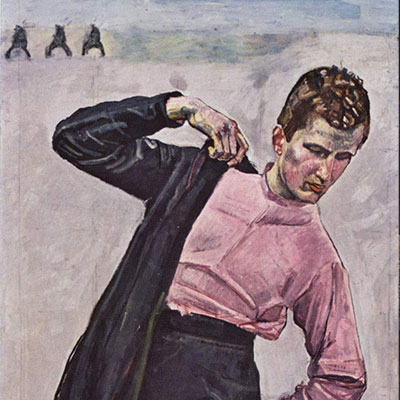
Ch.9. Global Style
In shops, the term generic often means a low-cost, non-name brand product. In general usage, it means ‘average’ or ‘typical’. In drama, the term genre refers to a type, class, form, movement or category. The individual production within the genre may or may not end up ‘ordinary’.
Realism is the dominant contemporary genre. The term itself did not emerge until the 1850s although the dramas of all periods are in some ways ‘realistic’ because performances onstage reflect the way each period sees itself. This is not necessarily the way that people really looked or lived, but their collective self concept. Every period has its own vision of realism, although that vision can look quite ‘unreal’ with hindsight. Most ISMs begin with a manifesto or public declaration of principles, from someone who did not like the status quo and felt that it was time for a change.
The predominant ISMs emerged during the nineteenth and twentieth centuries in approximately this order:
- Romanticism early 1800s
- Realism 1850s
- Naturalism 1873
- Impressionism 1874+
- Symbolism 1890–1920
- Expressionism 1910 (or 01)
- Futurism 1910–1930
- Dadaism 1916
- Constructivism 1921
- Surrealism 1924
- Didacticism 1927
- Absurdism late l940s
- Feminism late l960s–
- Postmodernism 1980s
While most ISMs are no longer produced in their pure form, they continue to influence both playwrights and productions. Why should an actor know all this? Because the terms are batted (and battered) around by directors, designers and critics attempting to explain what a show is striving to accomplish. Often a script is not written in a particular genre, but the production team decides to present it in that form. Sometimes this illuminates the text. Other times it destroys it. Some ISMs began in art, music, literature, politics, or philosophy, and the terms are not understood in the same way by everyone so they can cause confusion. Many ISMs are not actor concepts at all, but it is the actor who is expected to function within the ‘concept’ all around them.